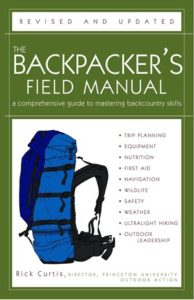Ari Huversarian, et al v. Catalina Scuba Luv, Inc., 2010 Cal. App. LEXIS 750.
Raffi Huversarian and his son, Ari Huversarian rented dive equipment from the Catalina Scuba Luv, Inc (“Catalina”). The rental form signed by Raffi (and perhaps by his son—we are not told) was in two parts. The first part contained information about the renter, the date of rental, and the equipment. The second part (the “release agreement”) began with the following language, bolded and underlined: “Equipment rental agreement, liability release and assumption of risk of scuba & rental gear for boat dives or multiple day rentals”. There followed, in unemphasized type, language by which Raffi, among other things, purported to release Catalina from his right to sue for injuries or death resulting from the rental and/or use of the equipment, and assumed the risks related to the rental and/or use. Significantly, there is no evidence that the father and son rented the equipment for either a boat dive or for multiple days. During the dive, 60 feet below the surface, Raffi ran out of air and, while he survived the ascent, he died shortly thereafter.
Members of Raffi’s family, including Ari (“plaintiffs”) filed a wrongful death action against Catalina (“defendant”), seeking compensation for the loss of their father and spouse. Catalina moved for summary judgment, urging the release agreement as a full defense to the plaintiffs’ claim. The family opposed the motion, claiming the terms of the release agreement did not cover the circumstances of the accident. Specifically, the family claimed that the boldface, underlined language of the agreement limited its application—that is, the dive of Raffi and his son was neither a boat dive nor a multiple day dive, and therefore the release agreement did not apply.
Catalina countered that the language of the release agreement was intended to apply to all renters, regardless of the nature of the dive.
The lower court granted Catalina’s motion for summary judgment, finding the release agreement provided a complete defense to the family’s claims. Plaintiffs appealed.
The Appellate Court, confronted by the conflicting interpretations of the release agreement, described it’s task as one of construing the language as written, unless the language is ambiguous. The language is ambiguous, the Court declared, if there exists “an alternative, semantically reasonable, candidate of meaning of the writing.” (Citing to California case authority). If there is ambiguity, a Court will allow extraneous evidence (that is, evidence outside the four corners of the document) of the parties’ intent.
Catalina in fact had tried to put into evidence testimony of its vice-president that it was not Catalina’s intent to limit the application of the release agreement. Given the rules of interpretation by which it was bound, the Appellate Court found that “the uncommunicated, subjective understanding (of Catalina) has no bearing on interpretation of the agreement”, and found the agreement to be unambiguous. Bottom line, the Court found, the language is what it is, and there is no reasonable interpretation of the words written other than that the agreement applied only to a boat dive or a multiple day dive. Since the accident did not occur in those circumstances, the Court ruled that Catalina was not entitled to the agreement’s protections.
Catalina offered another argument: that the bolded language should be regarded as a caption only, and NOT as part of the substantive agreement of the parties. Catalina cited California case authority for the proposition that captions are not “operative provisions” and therefore, are not determinative of the parties’ intent. The Court found, however, that the emphasized language in this case was substantive—that is, it did not merely introduce a paragraph or section of the agreement. Specifically, the Court stated: “the relevant language is not a mere caption, but an integral part of the exculpatory paragraph, emphasized in boldface and underlined. A person reading the rental agreement who is neither a boat diver nor multiple day rentor could reasonably conclude that the exculpatory language following the limiting language did not apply to him or her… and conclude that by signing the agreement, he or she had only agreed to the rental terms with no release of liability intended.”
Accordingly, the words were considered by the Court to express the intent of the parties, they were clear and not subject to variance by extraneous evidence, and their effect was to render the release agreement inapplicable to Raffi’s accident and death.
As a result, the Appellate Court reversed the summary judgment granted by the lower court and returned the case to that court for trial or other disposition.
Discussion:
- You may ask why the lower court considered the release agreement in deciding to deny the wrongful death claims brought by the Huversarian family members. Except, perhaps, for Ari, family members did not sign this or any other agreement releasing their claims. A wrongful death action is one brought by survivors of the decedent for their losses—including loss of companionship, economic loss, etc. These claims are distinct from claims which might be brought by family members on behalf the decedent for pain and suffering experienced by the decedent before death. Significantly, the release agreement Raffi signed expressly provided that it covered claims of Raffi’s “family, heirs or assigns”. Wrongful death claims are derivative in some states, and independent in others. If derivative, a family member’s claim will be subject to defenses which might have been asserted against the decedent. If independent, family members are not subject to defenses which might have been asserted against the decedent. It appears that in California, a wrongful death action is independent. It also appears, according to this Court and a recent California Supreme Court ruling (Ruiz et al v.Podolsky, 2010 Cal. LEXIS 8292), that such claims, although independent and not subject to defenses that might have been asserted against the decedent, may nevertheless be expressly waived by the decedent on behalf of family members by a clear expression of that intent in the release agreement. The Huversarian case does not address the issue, and it may, in fact, not have been raised in the court below. Again, the nature of wrongful death claims will vary from state to state. Check with your legal counsel to determine how you should consider approaching this issue in the context of applicable law.
- To be effective with respect to an injury, a release must cover the activity in which the claimant is engaged, when the accident occurs. Generally speaking, the scope of a release is determined by what would have been reasonably contemplated by the parties. Careful practitioners will set out the nature of the activities clearly, and broadly. When the activity occurs may also be an issue. Several recent cases have dealt with the issue of the intended duration of a release. Courts likely will not allow releases which are not clearly in effect at the time of the accident. A release for an event described as occurring on February 12, for example, may not be enforced if the event, for whatever reason, occurs two weeks later. A release for a described period (one year from date of signing, or a semester, for example) may not apply to an incident which occurs after the expiration of that period. The agreement should be clear about the event or period of time to which it apples.
- Courts generally will interpret an agreement on the basis of what is written, presuming that the parties meant what they wrote and signed. Courts will not take on the burden of guessing the intent of the parties beyond what the words clearly express. Only if the words are confusing or, as stated in the Huversarian case, subject to more than one reasonable interpretation, will the court look beyond the written word. And, in looking beyond the written word, courts will not adopt the unilateral intent or interpretation of one of the parties but will look instead, for evidence of a meeting of the minds (albeit one which may differ from the written words.) Do not assume, therefore, that you can outsmart the other party by using vague or esoteric terms, or rely on off the record discussions regarding the “real meaning” of the written words. Get it right the first time. This is not a contest to see which party to the agreement can fool the other
- Do you agree that the bolded and underlined language in Huversarian was more than a caption and deserved to be considered a part of the substantive agreement of the parties? A close call perhaps, and a lesson that we should not be casual about titles to documents and headings of paragraphs or sections of an agreement. Certainly, a title or heading should not be misleading—that is, cause a reader to believe that what follows is something other than what it truly is. If you use captions, be careful that they do not contradict or vary the substance of what follows. In Huversarian, it is instructive that Catalina did NOT argue that the alleged caption said anything that it did not say. Rather, Catalina was left with an argument that what it (Catalina) intended (but did not convey to Raffi) should prevail over the written word. A very tough argument to win.
Review your agreement for ambiguities and conflicts. An effective way to do this is to have it read by members of your staff and by a few adults or older minors who are typical of the families and direct participants in your program. Invite them to point out language that is not clear, or appears to conflict with other provisions in the agreement or elsewhere in your literature. Courts do not favor agreements which forgive negligent conduct in advance. Don’t give a judge or jury an easy excuse to overturn yours.
The Recreation Law Center Terms of Use
All material provided on The Recreation Law Center are for general reference and are not intended as legal advice. Recreation and adventure providers should work with experienced legal counsel, including counsel licensed in their jurisdiction, to advise them on how developing case law or legal issues may impact matters specific to their operation and applicable state laws.
This material is proprietary and copyrighted by the authors and may not be reproduced in any format. Please respect the work that the authors have put into this resource.


